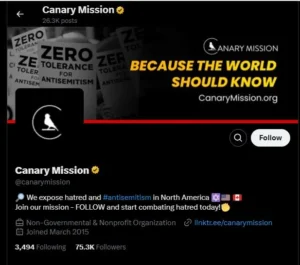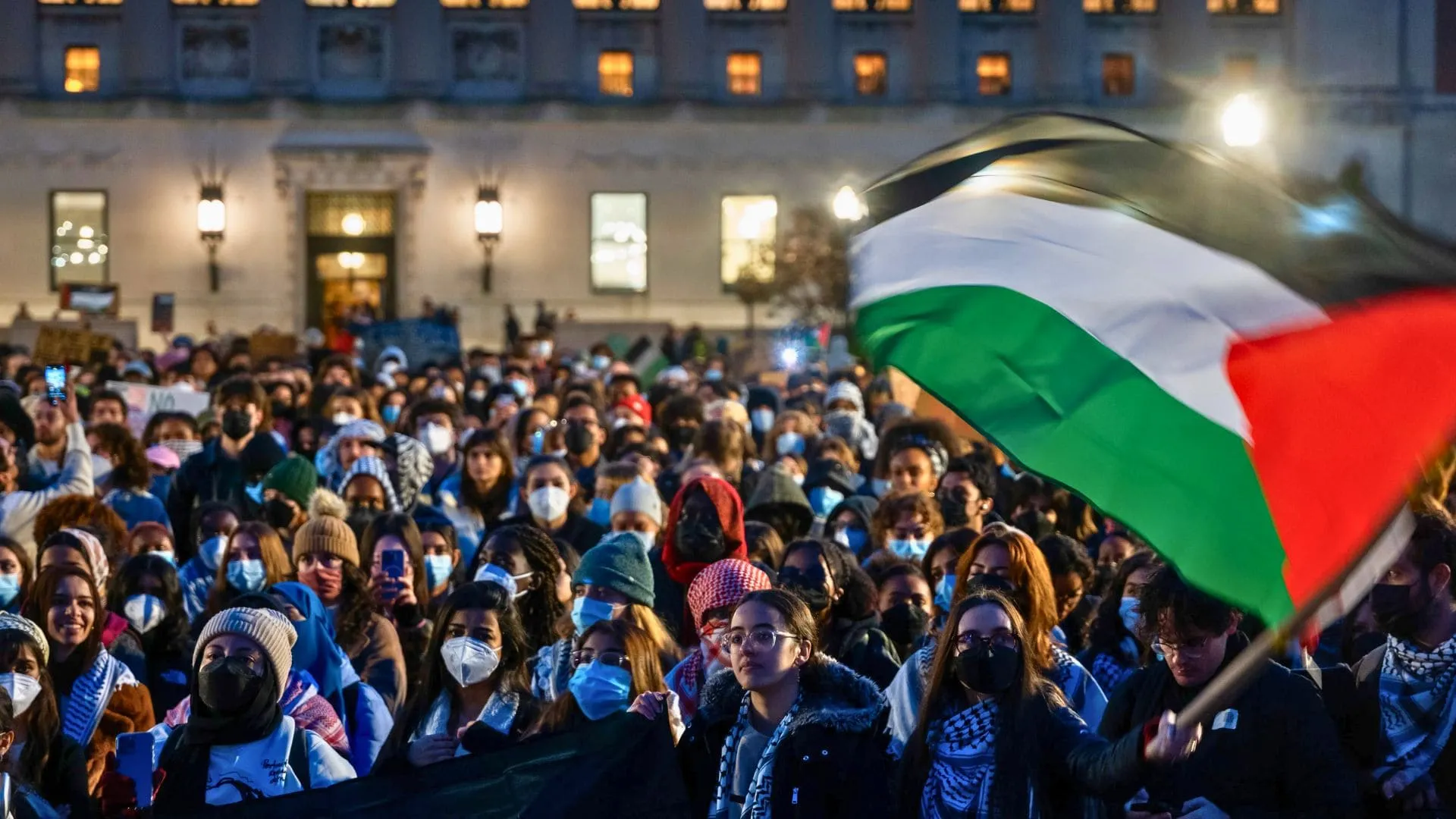The Trump administration has intensified efforts to detain and deport foreign students from U.S. campuses. A recent case highlights the role of a secretive online entity, Canary Mission. U.S. Immigration and Customs Enforcement (ICE) agents arrested Rumeysa Ozturk, a Turkish doctoral student at Tufts University, after her name appeared on the group’s website. While Canary Mission claims to expose anti-Israel activism, critics argue it serves as a blacklist, threatening students’ futures. With little transparency about its backers, the group has ties to pro-Israel lobbying efforts and Israeli government agencies.
What is Canary Mission?
Canary Mission, launched in 2015, presents itself as a watchdog monitoring individuals and organizations allegedly promoting antisemitism and anti-Israel sentiment on North American college campuses. The group claims to combat rising antisemitic hate crimes and counter the Boycott, Divestment, and Sanctions (BDS) movement, which calls for economic and political pressure on Israel over its treatment of Palestinians.

The website maintains a blacklist of students, faculty, and professionals it accuses of anti-Israel activities. It publishes personal details, including names, photos, institutional affiliations, and social media links. According to its mission statement, these records aim to prevent so-called “radicals” from securing jobs.
A 2015 promotional video from Canary Mission depicted Jews wearing yellow stars alongside hijab-wearing Palestinian women waving flags. The video concluded with the warning: “It is your duty to ensure that today’s radicals are not tomorrow’s employees.”
How Canary Mission Affects Students and Academics
Many students and faculty targeted by Canary Mission report serious consequences, including job rejections, online harassment, and threats. Since the website’s pages rank high on search engines, listed individuals often find their profiles appearing first in Google searches, affecting hiring decisions and admissions.
Will Mleczko, a 20-year-old student, voiced his concerns: “If a prospective employer finds you on there, they probably won’t hire you. You’ll be blacklisted.”
Nadine Jawad, a University of Michigan student government leader, discovered her profile accused her of associating with people who “support terrorists,” despite her strong academic record and lack of extremist ties.
Layla Saliba, a graduate student at Columbia University, protested Israeli airstrikes that killed her family members in Gaza. Soon after, Canary Mission labeled her a “supporter of terrorists,” leading to online harassment and death threats.
Egyptian-American student Layla Sayed also found herself targeted. Shortly after attending a pro-Palestinian demonstration, a friend informed her that Canary Mission had listed her profile. The website included her name, personal details, and a social media link. Following this, she received threats and was falsely branded a “Hamas War Crimes Apologist.”
Who Funds Canary Mission?
Despite its influence, little is known about Canary Mission’s financial backers. However, investigative reports have revealed some connections.
In 2018, journalist Josh Nathan-Kazis of The Forward identified the Jewish Community Federation of San Francisco as a funder. After this revelation, the federation publicly withdrew its support.
Al Jazeera’s The Lobby – USA documentary linked Israeli-American businessman Adam Milstein to Canary Mission’s funding. Adam Milstein denied direct involvement but praised the blacklist.
Reports from Haaretz indicate that Israel’s Ministry of Strategic Affairs uses Canary Mission’s data to bar activists from entering Israel. This raises concerns that the website functions as an intelligence asset rather than an independent watchdog.
How the Blacklist Operates ?
Canary Mission targets students, professors, professionals, and organizations it deems anti-Israel. It collects and publishes their personal information, often distorting quotes and affiliations to portray them as extremists.
According to the Middle East Studies Association, the group’s framing “makes individuals appear monstrous, guilty of raving antisemitism, and supportive of terrorism.”
The only way to be removed from the blacklist is by submitting a written apology. Many critics call this practice coercive and unethical.
Legal and Social Consequences
Students listed by Canary Mission report anxiety, fear, and paranoia. Many receive rape and death threats. Some have even been doxxed, with their phone numbers and addresses leaked online.
Beyond online harassment, Canary Mission’s influence extends into real-life intimidation. At George Washington University in 2018, two men dressed in yellow canary costumes entered a campus building, frightening pro-Palestinian activists.
Many argue that the blacklist stifles student activism. Rani al-Hindi, a former Palestine solidarity activist at Hunter College, noted, “It’s killing the student movement. We’re too intimidated to organize protests or launch divestment campaigns.”
Can Anything Be Done About Canary Mission?
Currently, students have little legal recourse against Canary Mission. Legal experts note that much of the website’s content is protected under the First Amendment.
However, academic institutions are being urged to take action. Experts argue that university leaders must educate themselves about Canary Mission’s tactics and support students and faculty facing harassment.
Bill Mullen, a professor at Purdue University and co-founder of Against Canary Mission, emphasized its chilling effect on activism: “It is the most significant and effective pro-Israel intimidation tool. It operates 24/7 and constantly updates its targets.”
As debates over free speech, academic freedom, and political activism continue, Canary Mission remains a troubling example of how anonymous groups wield digital blacklists to shape discourse and suppress dissent.























